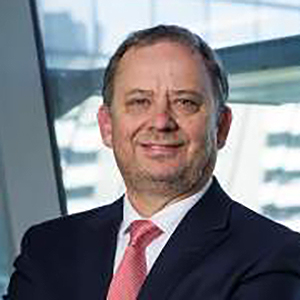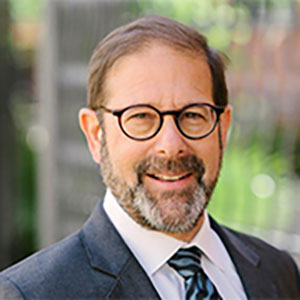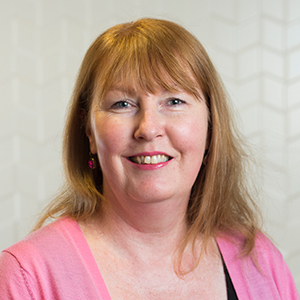 The traditional learning model, in which most people either went to uni straight after school or shortly after, has been disrupted, and as UniSA Provost and Chief Academic Officer Professor Allan Evans explains, the education sector has had to adjust to cater for the needs of individuals who are already part of the workforce or have family commitments. And increasingly, people are looking to change career paths.
The traditional learning model, in which most people either went to uni straight after school or shortly after, has been disrupted, and as UniSA Provost and Chief Academic Officer Professor Allan Evans explains, the education sector has had to adjust to cater for the needs of individuals who are already part of the workforce or have family commitments. And increasingly, people are looking to change career paths.
“Reskilling, retraining or achieving academic excellence in other areas [outside existing experience] is something that industry want much more now than in the past,” Prof Evans says.
“There’s a whole new philosophy to education emerging as a result of that, designing online degrees that allow people to put into practice what they’re learning, receive credit for their workforce experience and study when and where they want.”
This new philosophy is being realised with the launch of UniSA Online – an initiative which marks a bold new direction for digital education.
Unlike previous incarnations of online learning, in which face-to-face degrees were shoehorned into a virtual format, this next-gen teaching approach has been designed exclusively for online delivery.
“We’ve never actually developed the curriculum specifically for online learning before,” Prof Evans says.
“It’s a new direction that recognises online learners have different needs to face-to-face learners.
“The focus is on courses with shorter duration, increased engagement to maintain commitment to study, and regular, personal feedback.”
These new career-focused degrees are structured around courses that are generally 10 weeks in length, with tutors and support staff available outside traditional hours, including weekends and weeknights.
 The structure, delivery and content are all based on sophisticated contemporary research, and according to Professor Larry Lockshin, Head of UniSA’s Marketing School, it all represents a massive evolution in education.
The structure, delivery and content are all based on sophisticated contemporary research, and according to Professor Larry Lockshin, Head of UniSA’s Marketing School, it all represents a massive evolution in education.
“We’re building learning analytics and educational development research into the new courses in ways we’ve never done before,” says Prof Lockshin, who was involved in one of UniSA’s earliest online developments, a digital Masters of Wine Marketing in 2000.
“When I started teaching, no one told you how to write a course, no one gave you any help – you just wrote a course. Now with these new online degrees, it’s all based on research, and it’s not just research into teaching – it’s learning research and research into attention spans and behaviour.”
Prof Lockshin also notes that many of the insights gained in developing this new curriculum have already begun to influence the on-campus approaches of some staff.
“The things we’re learning from the research around this, particularly the idea of working in modules, is being adopted into course structures in general.”
 Academic Director of UniSA Online, Associate Professor Barbara Parker, attributes any emerging crossover to the enthusiasm with which academic staff have embraced the potential of high-end digital education. Far from feeling threatened by the new direction, leading figures in traditional education sectors are excited by the opportunities they see in tailored online teaching solutions.
Academic Director of UniSA Online, Associate Professor Barbara Parker, attributes any emerging crossover to the enthusiasm with which academic staff have embraced the potential of high-end digital education. Far from feeling threatened by the new direction, leading figures in traditional education sectors are excited by the opportunities they see in tailored online teaching solutions.
“It’s a whole different pedagogy,” says Assoc Prof Parker. “It’s a different way of teaching and we’re really promoting that. But I have never seen a group of academics so open and receptive to this scale of change, which has been such a breath of fresh air.”
While Prof Evans stresses that, for the foreseeable future, campus-based education will remain the main focus of Australian universities, including UniSA, he agrees with Assoc Prof Parker that the teaching community is beginning to recognise that online education is not just a convenient alternative, but a unique opportunity.
“All our engagement with school leavers signals they have a strong desire to come on campus, so we will continue to create face-to-face courses to develop skill sets for people aged 18 or 19,” Prof Evans says. “But we also recognise that many people in the workforce already have those skill sets. They’ve also got a home, family and work commitments that they can’t move away from. The traditional model of education – even online education – pretty much locked a large portion of the population out of higher education. So, this is now opening the door to a whole lot of different people to earn a degree.”